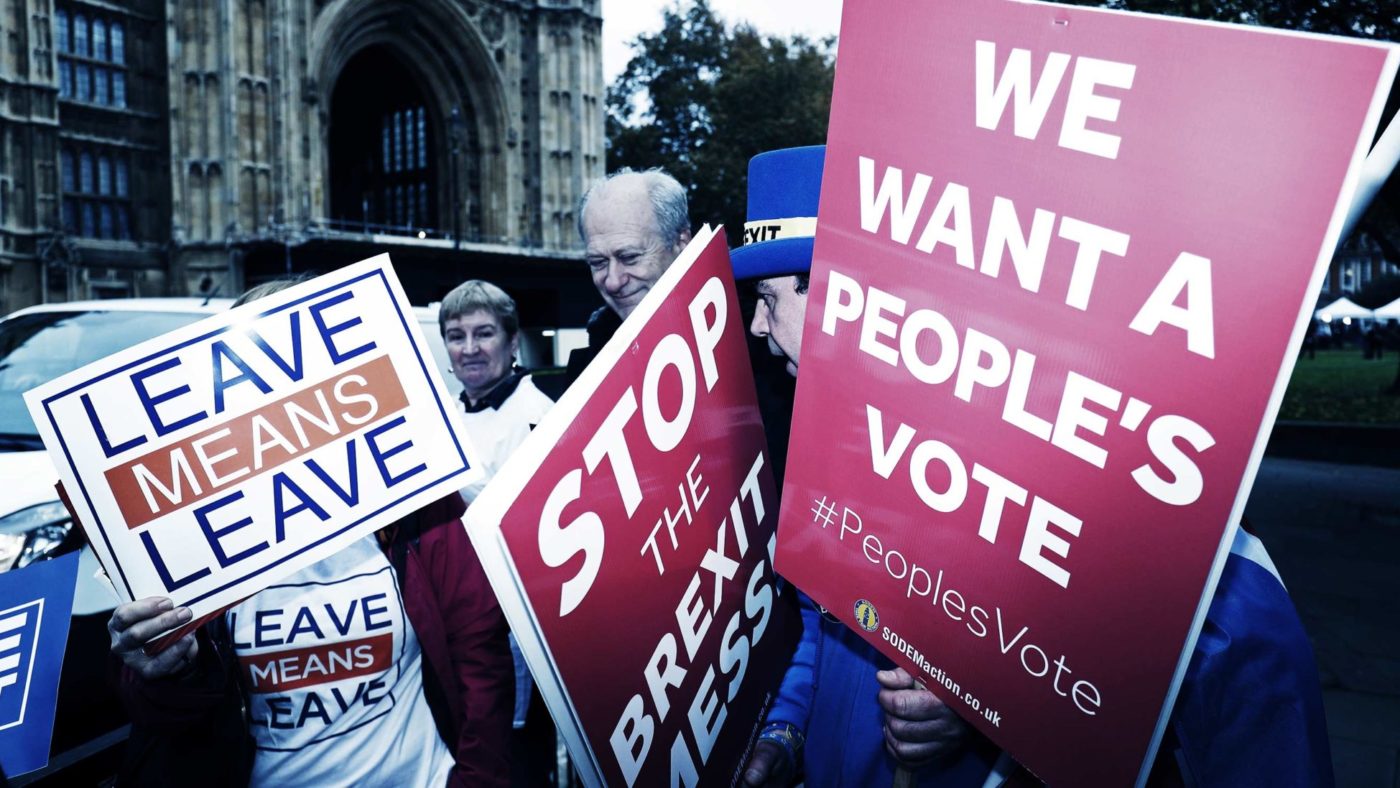Things have been moving so fast in the world of Brexit this week that it isn’t easy for anyone to keep up – least of all pollsters, whose fieldwork takes hours at a minimum (and ideally, much longer). So it’s perhaps a measure of the significance of this situation that at the time of writing we got six separate polls in little over 24 hours of the deal being announced.
All usual caveats apply to these, not just regarding polling, but specifically about polling in the midst of newsflow. But there are a few things we can say with some confidence. Theresa May’s proposed deal is not popular among those taking a view, and opposition crosses both party and Remain/Leave lines.
YouGov produced a poll for the People’s Vote (second referendum) campaign showing that 21 per cent thought MPs should vote for the deal, with 35 saying they should vote against it. YouGov also published a poll on its own account, with 19 per cent saying they support the deal and 42 per cent opposing. And in a third poll for The Times, 19 per cent said they thought it was a good deal.
YouGov also asked whether people thought the deal was the best possible, or whether something better could have been negotiated – this returned a 44-19 lead for “something better” in YouGov’s own poll. However in the YouGov/Times poll, 38 per cent felt the deal was either good (10 per cent) or the best anyone could have done (28 per cent), while in a forced choice question, 60 per cent preferred the deal to leaving without a deal.
All of these questions produced large numbers of undecided respondents – given the extensive coverage of this issue, that number is likely to fall considerably, and not necessarily evenly.
Survation for the Daily Mail found 27 per cent supporting the deal, 49 per cent opposing it, 18 per cent on the fence and 6 per cent undecided.
Hanbury Strategy’s poll for Politico, the first to field and entirely before the resignations, asked what MPs should do. Twenty-nine per cent said they should back the deal, 27 per cent said no deal, 33 per cent back a second referendum, 11 per cent none of the above.
Hanbury also drilled a bit deeper into some of the trade-offs – 52 per cent said staying in a customs union was a price worth paying to avoid hard border in Ireland while 32 said it wasn’t. But on “giving some control of laws and regulations” to secure a deal, 56 per cent said this was wrong and 34 per cent that it was right.
What about a second referendum? Support for another public vote seems to have increased, and has so far had majority or plurality support in all post-deal polls that asked about it. YouGov’s People’s Vote poll found 48 per cent saying support and 34 per cent saying oppose, widening to 51-28 if the deal was voted down by parliament. Its Times poll found 56 per cent preferring a second referendum to the deal when forced to choose.
Sky Data probed support for a three-way (deal, no deal or no Brexit) referendum. Fifty-five per cent said they would support this referendum (of which 44 per cent said they would strongly support it), 35 per cent said they would oppose it (28 per cent strongly).
So, while the political path to a second referendum remains unclear, opinion polls have begun to show more consistent support for one, without using question wordings that don’t specify what the options would be. And while hypotheticals should be treated with particular caution, it seems that support could increase further in the event of the May deal being voted down.
Perhaps not unrelatedly, by 40 per cent to 37 per cent, Brits would support delaying Brexit to allow more time for negotiations. Forty-seven per cent think May should resign, rising to 52 per cent if the deal is rejected by Parliament, but treat this with caution – questions asking if a politician should resign usually produce a lead for that. And, tellingly, respondents were far from convinced that any of the alternatives would get a better deal.
In terms of how people might vote if a referendum were to be held, support for Remain has edged up further, though not dramatically. Excluding don’t knows, YouGov’s People’s Vote poll had Remain 54 Leave 46 on its main questions, and Remain 56 Leave 44 if the deal were voted down.
Sky Data asked a three-way preference and found May’s deal on 14 per cent, no deal on 32 per cent, and no Brexit on 54 per cent. This type of question had previously been asked as a referendum question with ranked preferences. This one wasn’t, but if these were the first preference votes in such a referendum, Remain would win it outright.
It also seems that, as in Parliament, a substantial majority would rather avoid leaving without a deal, and majorities are against it even on binary choice questions. But when it comes to deciding whether avoiding a “no deal” Brexit means the May deal, or another deal, or not leaving, opinion remains divided.
The next few months could be eventful.


